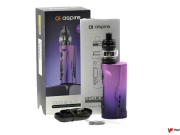Last August, New Zealand was commended by tobacco harm reduction experts for reducing the local tax on heated tobacco products (HTPs) by half, with the aim of encouraging smokers to switch to the safer alternative products. However, only two months later there appears to be a disagreement between New Zealand’s Associate Health Minister Casey Costello and Prime Minister Christopher Luxon over the potential financial benefit of the tax reduction on the products for tobacco giant Philip Morris (PMI), which currently has a monopoly on the product in the country.
Costello’s plan to encourage smokers to switch to HTPs has been thrown off course by regulations that unintentionally made the devices non-compliant due to new rules for vaping devices, such as requiring childproof locks and removable batteries. Costello admitted she was unaware that these regulations which took effect on October 1, 2024, would affect HTPs. On the other hand, Luxon claimed he was aware of the the childproofing rules/regulation changes, which were delayed by six months before being enforced. Moreover the pair seem to disagree on how the tax reduction on HTPs may affect PMI (while Costello acknowledged that Philip Morris may benefit from the tax break, Luxon disagreed).
To support her arguments, Health Minister Costello released five documents as “independent advice” on HTPs, however she was criticized as some of these were allegedly linked to Philip Morris and other tobacco-related entities. These documents discussed the potential health impacts of HTPs. Meanwhile, Treasury rightly pointed out that the tax break on HTPs might push users away from vapes, which are known to be safer than HTPs, and disproportionately affect vulnerable communities. They claimed that there is a lack of independent evidence proving that HTPs are significantly less harmful than cigarettes. However, studies have shown that while vapes are the safest, HTPs are in fact safer than cigarettes, despite not being as safe vapes.
To ban or not to ban
Last May, a slightly more consequential heated debate arose in Vietnam over whether to ban e-cigarettes and heated tobacco products, with differing stances from the Ministry of Health and the Ministry of Industry and Trade. The Ministry of Health, led by Minister Dao Hong Lan, advocated for a ban, citing the harmful effects of these products on health, while submitting several documents to the government which allegedly support his position. Lan claimed that the visible damage caused by e-cigarettes and heated tobacco justify a total ban on their production, sale, and advertising.
Meanwhile, in line with real-world data from Japan, a study carried out by the Korea Institute for Industrial Economics and Trade has found that smokers who switch to HTPs significantly increase their chances of quitting smoking altogether. Unlike traditional cigarettes, emphasized the research team, HTPs heat tobacco without combustion, resulting in reduced levels of harmful chemicals. The study revealed that 99.4% of HTP users were either former smokers of traditional cigarettes or dual users, with only 0.6% being new smokers. These findings quashed any concerns that HTPs could act as a gateway to smoking.
The research, which surveyed 4,514 adults, highlighted that adult females, those with higher education, individuals with children, office workers, and people with heightened health concerns were more likely to switch to HTPs. Since their introduction in Korea in 2017, HTPs have gained a significant market share, growing from 2.2% of total tobacco sales in their first year to 12% by mid-2021.
The study emphasized that HTPs, along with other smoke-free products like vapes and nicotine pouches, offer a safer alternative to traditional smoking, reducing exposure to toxic chemicals by 95%. This shift away from conventional cigarettes could have substantial public health benefits, particularly as smoking-related diseases cause over 8 million deaths annually.
HTP use and reduced smoking cessation rates
In Korea’s neighbouring country- Japan, HTPs are known to have seen remarkable success. Since their introduction on the Japanese market, HTPs have rapidly gained market share, appealing to smokers seeking alternatives to traditional cigarettes. This shift has led to a steady reduction in Japan’s cigarette consumption, with smoking rates dropping as more consumers switch to HTPs. By offering a less harmful option to smoking, HTPs have played a key role in Japan’s tobacco harm reduction efforts, transforming the landscape of nicotine consumption in the country.
Similarly in recent years, Hungary has seen a surge in heated tobacco product use, while traditional cigarette consumption has been declining. By August 2024, nearly 2,245 million heated tobacco units had been sold, a dramatic rise from 38.3 million units per month in 2020. Monthly sales of traditional cigarettes have dropped by 150-200 million units compared to 2020, and fine-cut tobacco sales have decreased by 20-25%.
Similar shifts have been observed in several other countries and reflect changing consumer preferences. Any measures imposed on either cigarettes, HTPs and vapes, such as flavour bans and tax changes, may of course further influence this ongoing transition in tobacco use patterns. Authorities must also bear in mind that many consumers respond to unavailable products by turning to the black market. With all this in mind, the importance of carryng out comprehensive and thorough assessments before setting any measures cannot be denied.













